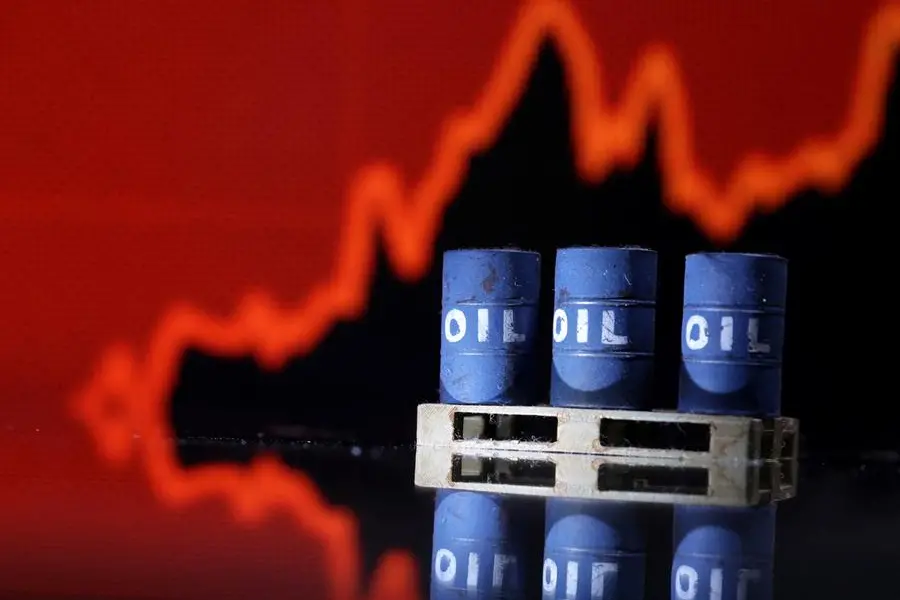PHOTO
LONDON - Oil prices surged on Monday, posting their biggest daily rise in nearly a year, after a surprise announcement by OPEC+ to cut more production jolted markets.
Brent crude was trading at $84.80 a barrel as of 1215 GMT, up $4.91, or 6.2%, after touching the highest in a month at $86.44.
West Texas Intermediate crude U.S. was at $80.27 a barrel, up $4.60, or 6.1%, after hitting its highest level since late January.
The Organization of the Petroleum Exporting Countries and their allies including Russia shook markets by announcing further production target cuts of about 1.16 million barrels per day (bpd) on Sunday.
The group, known as OPEC+, had been expected to maintain its earlier decision to cut output by 2 million bpd until December at its monthly meeting on Monday.
The pledges bring the total volume of cuts by OPEC+ to 3.66 million bpd according to Reuters calculations, equal to 3.7% of global demand.
As a result, Goldman Sachs lowered its end-2023 production forecast for OPEC+ by 1.1 million bpd and raised its Brent price forecasts to $95 and $100 a barrel for 2023 and 2024, respectively, it said in a note.
The Biden administration said the move announced by the producers was unadvisable and some analysts questioned OPEC+'s rationale for the extra production cut.
"What we are witnessing is an adaptive and agile OPEC+ group which is able and willing to act ahead of the curve. The recent market turmoil where Brent crude dropped to $70 a barrel probably gave OPEC+ a bit of a scare," said Bjarne Schieldrop, chief commodities analyst at SEB.
"They will have nothing of it," Schieldrop added, citing the group's likely concerns over rising Western interest rates and the global banking system.
The decision means OPEC+ is determined to act over those possible economic storm clouds on the horizon, Jorge Leon, senior vice president at consultancy Rystad Energy, said.
"These cuts may be signaling that OPEC+ believes that there are enough recessionary indicators in the market ... (and) will further tighten the oil market for the rest of the year and could push prices above $100 per barrel".
Brent fell last month towards $70 a barrel, the lowest in 15 months, on concerns that a global banking crisis and rising interest rates would hit demand despite lower OPEC oil output in March due to a halt in some of Iraq's exports.
(Reporting by Mohi Narayan in New Delhi and Florence Tan in Singapore; editing by Jamie Freed, Kirsten Donovan and Louise Heavens)





















